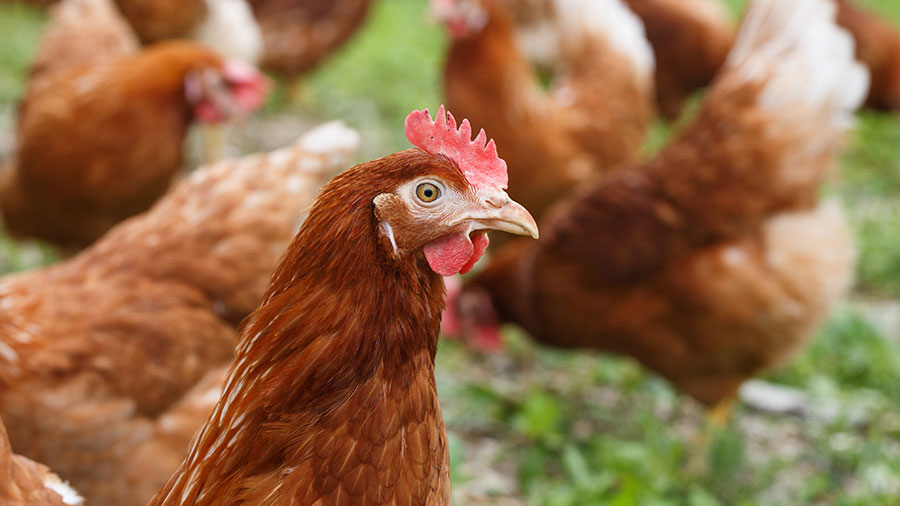RSPCA Assured gives more time for hen welfare improvements
 © AdobeStock/zlikovec
© AdobeStock/zlikovec Egg producers are being given more time to introduce verandas outside their hen houses, and to provide more natural daylight, following a rethink by RSPCA Assured.
Last November, the welfare body announced that, in order to carry their logo on retail packs, barn egg producers would have to provide covered verandas outside new or refurbished sheds from 1 May 2024, and all sheds by 2030.
Both barn and free-range egg producers would also have to provide windows allowing natural daylight into all sheds by 2030.
See also: Farmers fear new assurance standards for hens will raise costs
But following concerted opposition from egg producer representatives, and a stakeholder meeting on Monday 22 January, RSPCA Assured has agreed to compromise.
On covered verandas, the organisation is now saying they must now be installed on all barn egg facilities by 2030, so delaying the immediate requirement for new and refurbished barns for six years.
Free-range egg producers will not have to install verandas at all.
Daylight issues
RSPCA Assured is also softening its new standards for natural daylight.
Previously it had said that new and refurbished barn and free-range layer sheds would have to provide windows (covering 3% of the total floor area) from 2024.
But in both cases it is now pushed back to 1 January 2031, though this will apply for all houses, not just new or refurbished ones.
Popholes in free-range sheds will count towards that 3% daylight requirement.
RSPCA poultry specialist Kate Norman said the changes represented a “very important step forward for hen welfare in the UK”.
“Natural daylight provides a number of important welfare benefits for laying hens, such as helping to reduce stress, feather pecking and keel bone fractures.”
Questions
But that is unlikely to convince egg industry representatives.
Last November, both the British Egg Industry Council and the British Free-Range Egg Producers Association wrote to RSPCA Assured to question the practicality and cost of the new arrangements.
“Regarding the provision of natural daylight, we are concerned that the installation of windows will make management of the birds more challenging, potentially leading to an increased risk of poor welfare outcomes,” they said.
The two organisations put the cost of installing verandas and windows at about £10 a bird – a cost which they believe cannot be recovered from the marketplace.
About 70% of the 26 million-bird national free-range flock are currently RSPCA Assured, suggesting a total potential cost to the sector of £182m.
